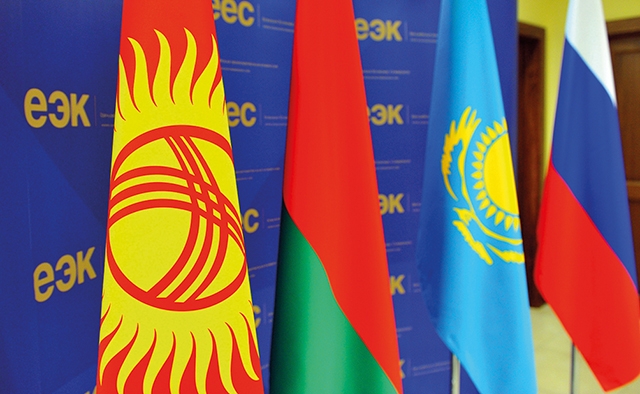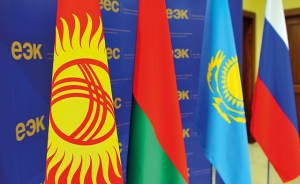The Dynamic of the Eurasian Economic Union for 2020
Op-Ed
Recent developments in Russia regarding the country’s future constitutional reforms sent an important foreign policy message to Russia’s neighbors: Moscow’s foreign policy will remain unchanged beyond 2024, when Vladimir Putin’s presidency ends.
One of the components of Russia’s foreign policy is the Eurasian Economic Union (EEU), and it is clear that Moscow will be putting a lot of energy into expanding the project beyond what it currently covers (Armenia, Kazakhstan, Belarus, Kyrgyzstan and Russia itself). The creation of the EEU in 2015 reflected Russian geopolitical imperative, through which western economic or military encroachment on the former Soviet space would be if not forestalled, then considerably constrained. The creation of the EEU (although economics does play a big part in it) is also about further enabling Russia to solidify its influence over Belarus, Kazakhstan, Armenia and Kyrgyzstan. Beyond trade, the countries often discuss security, military affairs and other vital spheres of cooperation.
The overall idea, however, even though not openly stated, has been to place the EEU against the European Union (EU) and the latter’s enlargement plans near Russian borders. The EEU enables Russia to project its influence over large swathes of lands and, like NATO in the West, potentially use its Collective Security Treaty Organization as a shield against various security challenges emanating from the Central Asian region or in the South Caucasus.
Now, with more clarity about Russian foreign policies beyond 2024, one of Moscow’s primary goals in 2020 and beyond will be to enlist Uzbekistan into the EEU. Over the past year, there have been active talks on Tashkent’s likely decision to join the EEU. In fact, so many hints have appeared in the Russian and foreign media that the decision could indeed be coming in 2020.
Uzbekistan sees that the EEU has a number of strategic advantages for it. Altogether, the grouping has a population of nearly 179 million people. The gross domestic product nears $1.9 trillion. This is much lower than what the EU or BO has. Another advantage for Uzbekistan is the size and borders of the Union, which almost correspond to the former Soviet Union’s borders. It has been in Russia’s core interests to have Uzbekistan as a close partner, as the country arguably has the most strategic location in the region. Uzbekistan shares borders with all Central Asian states (Kazakhstan, Kyrgyzstan, Tajikistan and Turkmenistan) and Afghanistan, and also sits on a big part of the agriculturally rich Fergana Valley, with a sizable population as well as oil and natural gas deposits. This has resulted in, at times, difficult relations between Tashkent and Moscow since the break-up of the Soviet Union.
Yet, the country’s strategic location as well as quantity of natural resources have enabled Uzbekistan to always successfully resist Russian pressure to enlist Tashkent into CSTO or the EEU, which upholds the sceptics’ view that Tashkent is not going to join Russian-led groupings.
This development is important to watch, as Russia will be also active in trying to enlist other neighboring states, among them Azerbaijan. Most likely, Baku will resist this, as membership of EEU will only increase Russia’s influence. Moreover, Azerbaijan will resist because of Armenia’s EEU membership. The Union requires its members to have open borders and active trade, while Baku and Yerevan have an intractable territorial conflict over the Nagorno Karabakh region. Nevertheless, it is likely Russia will be consistent in its efforts in the South Caucasus.
For Georgia, which has its regions of Abkhazia and Tskhinvali under Moscow’s military occupation, larger Russian influence in the South Caucasus would bring additional pressure on Tbilisi. This could limit the Western reach in the region.
What the EU and the US need to do to correct the situation is to increase their economic influence in the South Caucasus through larger investments propped up by close political contacts with Georgia. In this respect, building new transport infrastructure across Georgia is of crucial importance to the region overall, as is western reach into the region. That explains why such projects as the Anaklia port, railways and new roads are always regarded geopolitically as near game-changers.
By Emil Avdaliani
Image source: vestnikkavkaza.net












